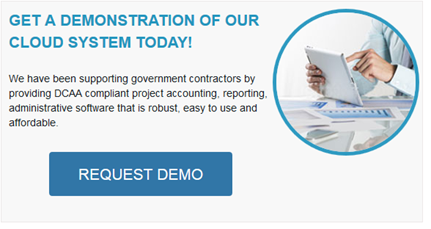Twitter Feed
Cloud computing: A data-centric business model
According to the National Institute of Standards and Technology: “Cloud computing is a model for enabling ubiquitous, convenient, on-demand network access to a shared pool of configurable computing resources (e.g., networks, servers,…
John Mayer At Dell World 2015!! (Oh, I’ll be there too.)
An artist who defies all boundaries, John Mayer has won seven Grammy Awards and sold more than 17 million albums worldwide. The singer, songwriter and guitarist’s skills have been widely…
Data-centric Security: The New Must Have
Where is your data right now? The explosion of cloud computing and consumer IT means that your data, as well as data about you, can be virtually anywhere.Having your data and the…
Personal email:Pathway to Cybersecurity Breaches
As a business communications tool, email is the dominant option, and many corporations have policies that allow the use of personal email on corporate computers. In a recent Adobe Systems…
IEEE Cloud Computing: Legal Clouds
The new issue of IEEE Cloud Computing is now available! This special issue looks at how to balance privacy with legitimate surveillance and lawful data access. Some of the…
Cloud hosting: Look beyond cost savings and weigh pros, cons
Is your company struggling with the idea of using “cloud hosting” in order to save money? Truth be known, using cost savings as the primary reason for moving to cloud…
“Cloud First” Lessons Learned from ViON
In 2011, then United States CIO Vivek Kundra released the US Federal Cloud Computing Strategy [1]. In the executive summary he pointed to cloud computing as a key component of…
Looking for Security Peak Performance?
You can find it at Dell Peak Performance 2015!!! I’ll be there at the Aria Resort and Casino in Las Vegas attending as a social media correspondent with a full…
The Cybersecurity Sprint: Are we safe yet?
UPDATE: NBC News reports U.S. officials have disclosed a hack of the Pentagon’s Joint Staff unclassified email system, which took place on July 25. Recent unauthorized access to a U.S. government database…
Cloud Computing + Things = “Information Excellence”, Not IoT
The Internet of Things (IoT) has quickly become the next “be all to end all” in information technology. Touted as how cloud computing will connect everyday things together, it is…
So you won your first Government Contract… Congratulations!
Among the new issues you will need to consider, your accounting systems, both practices and technology, will need to pass muster with Defense Contract Audit Agency (DCAA) auditors. This will require a combination of internal processes and controls. Your accounting system will need to properly delineate direct and indirect costs, must properly pool indirect costs, and must properly handle unallowable costs.
It’s likely that you are currently using Quickbooks, the dominant player in small and medium enterprise (SME) accounting. You may need a new software solution. We have seen estimates that Quickbooks’ Chart of Accounts can be restructured to make DCAA compliance possible in about a week. However, you will also need to add a DCAA compliant Time Sheet system, and will probably need to add a third party reporting system like Qqube or similar, then invest the time to create the detailed reports you want for internal analysis, as well as the invoicing and other forms you will need to submit to the agency for which you are work. If you are successful, you will have created a custom, band-aid type system with multiple vendors, which creates complexity, increasing training costs, and the likelihood of errors. Consistent with the rest of the market, Intuit is making a hard sell of both users and ProAdvisors toward Quickbooks Online – but their own internal training ProAdvisor training resources advise that using QBO for time billing is not a good fit. QBO does not handle inventory well, either, which has spawned multiple inventory add-ons for QBO.
Instead of trying to take Quickbooks Desktop where it was never designed to go, consider a fully integrated accounting, timesheet, contract management, expense management, purchasing, CRM, and Human Resource system. If your company has the I.T. resources including the required database server capacity and licenses, self-hosting may be an option. For a lot of small to medium businesses who can’t or choose not to shoulder those infrastructure expenses, accounting software that runs against a cloud database is the best solution. Ideally, though, look for the option to switch from one deployment model to the other- that kind of agility will benefit your business. ERPGovCloud meets all the functional requirements listed above, including timesheet entry for employees and/or subcontractors, ADP and Paychex export, multiple pay classes per employee, and generation of complete government invoice packages, including forms 1034 and 1035.
[Sponsored]
( Thank you. If you enjoyed this article, get free updates by email or RSS – © Copyright Kevin L. Jackson 2012)
–>
Cloud Computing
- CPUcoin Expands CPU/GPU Power Sharing with Cudo Ventures Enterprise Network Partnership
- CPUcoin Expands CPU/GPU Power Sharing with Cudo Ventures Enterprise Network Partnership
- Route1 Announces Q2 2019 Financial Results
- CPUcoin Expands CPU/GPU Power Sharing with Cudo Ventures Enterprise Network Partnership
- ChannelAdvisor to Present at the D.A. Davidson 18th Annual Technology Conference
Cybersecurity
- Route1 Announces Q2 2019 Financial Results
- FIRST US BANCSHARES, INC. DECLARES CASH DIVIDEND
- Business Continuity Management Planning Solution Market is Expected to Grow ~ US$ 1.6 Bn by the end of 2029 - PMR
- Atos delivers Quantum-Learning-as-a-Service to Xofia to enable artificial intelligence solutions
- New Ares IoT Botnet discovered on Android OS based Set-Top Boxes


